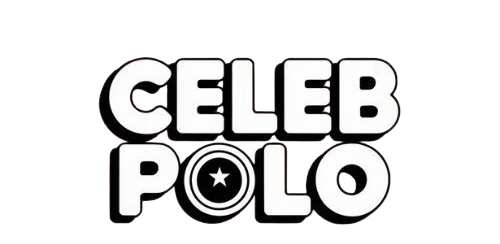Starting a blog in 2025 has never been easier. With numerous free blog platforms available, beginners can launch their online presence without spending money.
This comprehensive guide explores the best blogging platform for beginners and experienced writers alike.Choosing the right blogging software is crucial for your success.
The perfect publishing platform should offer easy setup, great blog design options, and powerful content creation tools. Let’s explore fifteen exceptional free blogging tools that can help you build a professional online presence.
WordPress.com – Most Popular Free Blogging Platform
WordPress.com stands as the most popular free CMS worldwide. This content management system powers millions of websites globally.
The platform offers beautiful blog templates and intuitive blog customization options.The free plan includes WordPress.com subdomain and basic features.
You get access to hundreds of themes and essential SEO optimization tools. The platform provides excellent mobile-friendly blogging capabilities and reliable blog hosting services.
WordPress.com excels in social media integration and offers comprehensive blog analytics. The drag and drop editor makes content creation simple for beginners. However, the free version has limited customization options and displays WordPress ads.
READ THIS BLOG : Complete Italy Travel Safety Guide 2025: Essential Tips for Tourists, Crime Prevention & Emergency Contacts
Medium – Best for Professional Writers and Content Creators
Medium focuses on high-quality content and reader engagement. This publishing platform attracts millions of readers seeking valuable insights.
Writers can reach large audiences without worrying about blog traffic optimization.The platform offers clean, distraction-free writing interface.

Medium handles all technical aspects, allowing writers to focus on content. The built-in audience makes it easier to gain initial readers compared to starting from scratch.
Medium’s Partner Program enables blog monetization through reader engagement. The platform provides excellent content publishing workflow and automatic responsive design. Writers benefit from Medium’s established community and discovery features.
Blogger – Google’s Simple Free Blogging Solution
Blogger, owned by Google, offers reliable free blog hosting services. The platform integrates seamlessly with other Google services like AdSense and Analytics.
This makes it ideal for beginners learning how to start a blog.The interface remains simple and user-friendly.
Blogger provides basic blog templates and customization options. Users receive a free blogspot.com subdomain with options to add a custom domain later.
Google’s backing ensures reliable uptime and security. The platform offers basic SEO optimization features and Google Search Console integration. Blogger works well for personal blogs and small business websites.
Wix – Drag-and-Drop Website Builder with Free Blogging
Wix combines website builder functionality with powerful blogging features. The drag and drop editor allows complete design freedom without coding knowledge.
This platform excels in visual blog design options and customization.The free plan includes Wix subdomain and access to hundreds of templates.
Users can create stunning blogs with advanced design elements. The platform offers excellent mobile-friendly blogging capabilities and responsive design.
Wix provides built-in SEO optimization tools and blog analytics. The platform supports various content types including videos, galleries, and interactive elements. However, free users must display Wix branding on their blogs.
Ghost – Modern Publishing Platform for Serious Bloggers
Ghost targets professional publishers and serious bloggers. This modern publishing platform focuses on speed, SEO optimization, and clean design.
The platform offers excellent content creation tools for writers.The free version provides limited functionality but showcases Ghost’s capabilities.
Users get access to beautiful themes and powerful editors. The platform excels in blog traffic optimization and search engine visibility.
Ghost offers built-in blog monetization options and membership features. The platform provides excellent blog analytics and content publishing workflow. However, the free plan has significant limitations compared to paid options.
Substack – Newsletter and Blog Platform for Monetization
Substack combines blogging with newsletter functionality. This platform focuses on building direct relationships with readers. Writers can monetize content through paid subscriptions from day one.

The platform offers simple setup and clean writing interface. Substack handles email delivery and payment processing automatically. This eliminates technical complexities for content creators.
Substack provides excellent blog monetization opportunities through subscriber model. The platform offers basic blog analytics and audience insights. Writers benefit from Substack’s growing network and discovery features.
LinkedIn Publishing – Professional Networking Blog Platform
LinkedIn Publishing leverages the world’s largest professional network. This platform offers immediate access to a business-focused audience.
Content creators can build professional authority and expand their network.Publishing on LinkedIn requires an existing LinkedIn profile.
The platform offers simple editor and professional formatting options. Content appears in followers’ feeds and LinkedIn’s content discovery.
LinkedIn provides excellent social media integration and networking opportunities. The platform offers basic analytics and engagement metrics. However, content remains within LinkedIn’s ecosystem with limited customization options.
Tumblr – Creative Microblogging and Social Platform
Tumblr combines blogging with social networking features. This platform excels in creative content, visual posts, and community engagement.
The audience tends to be younger and more creative.The platform offers unique blog templates and extensive customization options.
Users can create multimedia-rich blogs with ease. Tumblr provides excellent social media integration and content sharing features.
The platform works well for creative portfolios and personal expression. Tumblr offers basic blog analytics and engagement tracking. However, the platform has faced challenges with content policies and user base changes.
Weebly – User-Friendly Website Builder with Blog Features
Weebly provides comprehensive website builder functionality with integrated blogging. The drag and drop editor simplifies site creation for beginners.
This platform offers a good balance between simplicity and features.The free plan includes Weebly subdomain and basic features.
Users get access to professional templates and customization options. The platform provides reliable blog hosting and mobile-friendly blogging capabilities.
Weebly offers built-in SEO optimization tools and basic blog analytics. The platform supports e-commerce integration for business blogs. However, free users must display Weebly branding and have limited storage.
HubSpot Blog Maker – Marketing-Focused Free Blogging Tool
HubSpot Blog Maker targets businesses and marketers. This blogging software integrates with HubSpot’s marketing ecosystem.
The platform offers excellent blog marketing strategies and lead generation tools.The free version provides basic blogging functionality with marketing focus.

Users benefit from HubSpot’s expertise in blog traffic optimization and conversion. The platform offers professional templates and customization options.
HubSpot provides comprehensive blog analytics and marketing insights. The platform excels in SEO optimization and content strategy guidance. However, full features require upgrading to paid HubSpot plans.
Jimdo – AI-Powered Website and Blog Builder
Jimdo uses artificial intelligence to simplify the blog setup guide process. The platform creates personalized websites based on user preferences.
This AI-powered approach helps beginners overcome initial setup challenges.The free plan includes Jimdo subdomain and basic features.
Users get access to modern templates and simple customization tools. The platform provides reliable blog hosting and responsive design.
Jimdo offers basic SEO optimization features and mobile-friendly blogging capabilities. The AI assistance helps with content suggestions and design recommendations. However, advanced features require paid upgrades.
Penzu – Private Journaling with Public Blog Options
Penzu primarily focuses on private journaling with optional public sharing. This platform appeals to personal bloggers and diary writers.
Users can keep entries private or share selected content publicly.The free version offers basic journaling features and limited public blog functionality.
The platform provides a simple interface and secure hosting. Penzu focuses on writing experience rather than complex features.
The platform offers basic blog customization and sharing options. Users can export content and maintain privacy control. However, Penzu lacks advanced blogging features and SEO optimization tools.
Write.as – Minimalist Distraction-Free Writing Platform
Write.as champions minimalist writing experience without distractions. This publishing platform focuses purely on content creation and reading.
The clean interface appeals to writers seeking simplicity.The free version allows anonymous posting and basic customization.
Users can create clean, readable blogs without technical complexity. The platform provides reliable hosting and fast loading times.
Write.as offers optional custom domain support and basic blog analytics. The platform maintains focus on writing quality over complex features. However, design options remain extremely limited compared to other platforms.
Anchor – Free Podcast Hosting That Doubles as Blog
Anchor primarily serves podcasters but includes blogging functionality. This platform allows creators to repurpose podcast content as blog posts.
The integration between audio and written content creates unique opportunities.The free plan includes unlimited podcast hosting and basic blogging features.

Users can create show notes and episode descriptions as blog content. The platform handles distribution to major podcast platforms.
Anchor provides basic blog analytics and audience insights. The platform works well for content creators producing both audio and written content. However, blogging features remain secondary to podcast functionality.
READ THIS BLOG : Hanoi to Ho Chi Minh Train Travel Guide 2025: Booking Tips, What to Pack & Best Stopovers?
Telegraph – Anonymous Publishing Platform
Telegraph offers instant, anonymous publishing without registration requirements. This publishing platform focuses on simplicity and privacy.
Users can create and share content immediately without accounts.The platform provides clean, readable formatting and fast loading.
Telegraph excels in quick content sharing and temporary publishing. The minimalist approach appeals to users wanting a simple content publishing workflow.
Telegraph offers no customization options or blog analytics. The platform works well for one-time publishing or anonymous sharing. However, it lacks features necessary for serious blogging or long-term content strategy.
Frequently Asked Question
What is the best free blogging platform for complete beginners?
WordPress.com offers the best balance of features and ease of use for beginners. The platform provides comprehensive tutorials and community support.
Can I monetize my blog on free platforms?
Most free platforms have monetization restrictions. Medium and Substack offer the best blog monetization opportunities among free options.
Do free blogging platforms affect SEO rankings?
Free platforms can rank well in search engines. However, custom domains and paid hosting typically provide better SEO optimization opportunities.
How do I choose between different free blogging tools?
Consider your goals, technical skills, and desired features. Professional blogging tools offer more customization while simple platforms provide easier setup.
What are the main limitations of free blogging platforms?
Common limitations include restricted customization, limited storage, platform branding, and reduced monetization options compared to paid alternatives.
Conclusion
Choosing the right free blogging platform depends on your specific needs and goals. WordPress.com offers the most comprehensive features for beginners, while Medium provides excellent audience reach. Consider your long-term objectives when selecting blogging software.
These fifteen free blog platforms provide excellent starting points for new bloggers. Each platform offers unique advantages in content creation tools, blog design options, and social media integration. Start with one platform and migrate later if your needs change.

